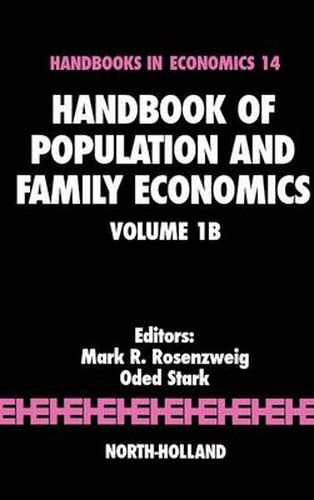Readings Newsletter
Become a Readings Member to make your shopping experience even easier.
Sign in or sign up for free!
You’re not far away from qualifying for FREE standard shipping within Australia
You’ve qualified for FREE standard shipping within Australia
The cart is loading…






The collection of chapters in the Handbook of Population and Family Economics and their organization reflect the most recent developments in economics pertaining to population issues and the family. The rationale, contents, and organization of the Handbook evolve from three premises. First, the family is the main arena in which population outcomes are forged. Second, there are important interactions and significant causal links across all demographic phenomena. Third, the study of the size, composition, and growth of a population can benefit from the application of economic methodology and tools. The diversity and depth of the work reviewed and presented in the Handbook conveys both the progress that has been made by economists in understanding the forces shaping population processes, including the behavior of families, and the many questions, empirical and theoretical, that still remain. For more information on the Handbooks in Economics series, please see our home page on http://www.elsevier.nl/locate/hes
$9.00 standard shipping within Australia
FREE standard shipping within Australia for orders over $100.00
Express & International shipping calculated at checkout
The collection of chapters in the Handbook of Population and Family Economics and their organization reflect the most recent developments in economics pertaining to population issues and the family. The rationale, contents, and organization of the Handbook evolve from three premises. First, the family is the main arena in which population outcomes are forged. Second, there are important interactions and significant causal links across all demographic phenomena. Third, the study of the size, composition, and growth of a population can benefit from the application of economic methodology and tools. The diversity and depth of the work reviewed and presented in the Handbook conveys both the progress that has been made by economists in understanding the forces shaping population processes, including the behavior of families, and the many questions, empirical and theoretical, that still remain. For more information on the Handbooks in Economics series, please see our home page on http://www.elsevier.nl/locate/hes